Prior to enrolling in the NYZCCC Foundations course I had a rich, satisfying and rewarding life and wasn’t even sure why I decided to add this work to my full plate. But after twenty-eight years of sobriety and twenty-five years of Zen practice I’ve learned not to resist going where my higher self leads me, and taking on the next right challenge. Already the experience has added new dimensions, color and gratitude to my world; one that I thought couldn’t get any fuller.
The past three weeks have been filled with highlights and there have only been two
lowlights that I recall: one was stubbing my toe while roaming around in the dark in my
apartment late at night after an exhausting, though exhilarating, day; the other was waking up on Sunday in an inexplicably cranky mood and getting angry at and blaming (two of my dark shadows) my partner, who was not responsible for my mood in any way even if I convinced myself that he was. Both were a result of falling short in my self-care, an area I must pay special attention to while taking this course, so as to avoid falling into habitual and destructive patterns of thinking and behaving.
The word rapturous has been with me since the last training session. It was the one word that stuck out for me as something I thought I had never experienced. But when I ride my bike on a beautiful day, and when I complete a day of service, I do experience rapture or an ‘elevated sense of bliss’ as the dictionary defines it. As a result of first rejecting this word and then carrying it with me these three weeks, I have become hyper aware of how happy I am in my life and how grateful I am for all I have and can do. I have become even closer and more connected to my partner and other loved ones in my life.
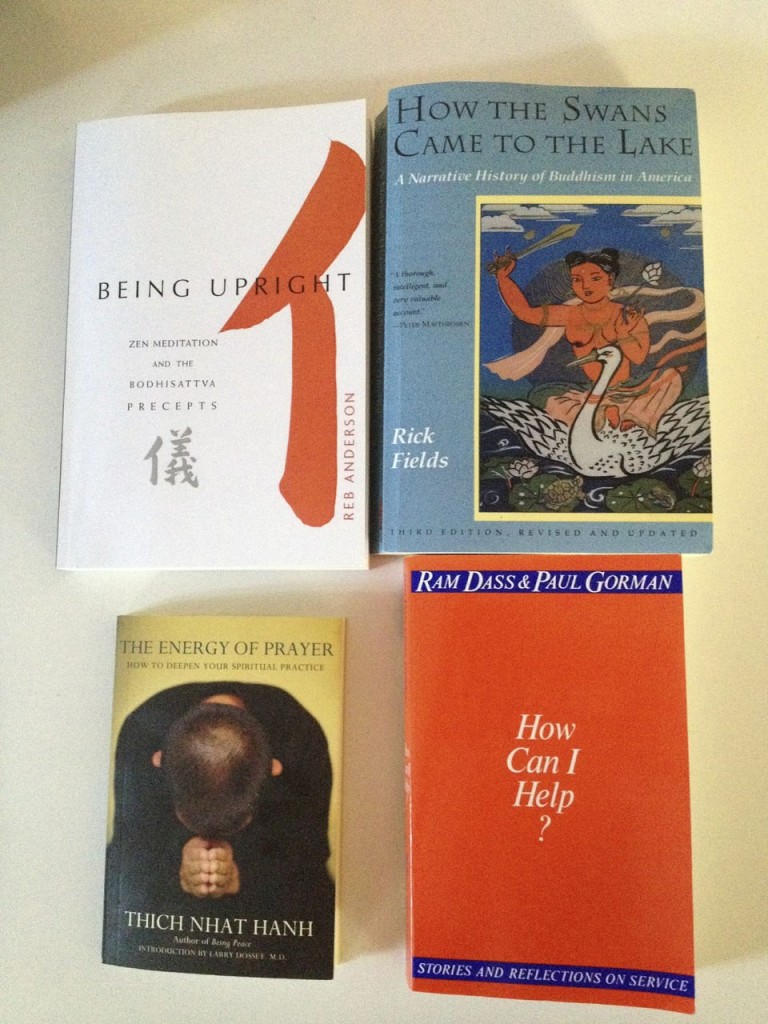
After reading Thich Nhat Hanh’s book on prayer, I have realized God and prayer in a new way. I don’t believe in the God of my Baptist childhood and I was satisfied in my life with just a meditation practice and okay without prayer. I was actually a bit self-righteous about it (another dark shadow) and would deride others (in my mind) who were in 12-step recovery for focusing more on prayer and ignoring meditation in the 11th step. I felt sorry for them for not having a meditation practice. It feels as if a circle is being completed for me with this new outlook on prayer. I will now, with the help of prayer, be more compassionate toward others.
I now realize that I do pray and have been praying all these years, and do not have to apologize for it or be ashamed of it. And I do experience God when visiting a patient or working with a client or teaching a class. God is there with us, in us, guiding us—even if I don’t have a traditional definition of God, God is still there and I embrace this newfound willingness to acknowledge the presence of God.
While reading How the Swans Came to the Lake, I was somewhat apprehensive in the first half, knowing that the history would eventually get to my Zen teacher and his lineage. I know a lot of the history from my years of study and knew that this book was written before my teacher was finally exposed and ousted from his monastery and temple for sexual improprieties. I also knew that his proclivities were known even in the early days and I was sure that would not be in the book. I was right about that. What I wasn’t right about was how I would feel when I read this section of the book. Rather than feeling angry and ashamed of being connected to his lineage, I felt proud and grateful that I had the experiences I did, that I was so familiar with the teachings of my dharma ancestors, and that I was no longer hurt and bitter about my teacher’s transgressions. I can now pray for him and forgive him, “for he knows not what he does.”
One of the most surprising things for me in this process is how, after only three sessions
at the hospital, each of which has felt like a sesshin as I was totally and completely focused in my body and fully present in each moment while there, I feel at ease walking into a patient’s room and introducing myself. All self-doubt disappears when I cross the threshold and allow God and the person in front of me to guide me. I let the not knowing be okay. It feels harder to approach staff, as their barriers feel thicker and more impenetrable, so that will be something to work on.

As difficult as the first three hour experience in the hospital was: the fear of walking into a room to talk to a stranger, the fear of not being wanted, the insecurity of thinking I hadn’t a clue what I was doing there or what to say and do with suffering patients, especially in the Psych ward I was assigned to, there was an underlying feeling between the first and second week of “I can’t wait to do it again.” It was similar to the feeling/thoughts I had after my first sit at the monastery, which had me jumping out of my skin and in much physical pain. When the bell rang twenty-five years ago and I was released from the torture of sitting and able to stand up and move my body, I couldn’t wait to do it again. It is the same now. Yet each time I sit down on the cushion it is different. And each time I visit a patient it is also different.
I only saw two patients the first week. Both were open to a little meditation instruction. The first waved me down an hour after I sat with him to show me the meditation relaxation channel on TV and talked about going home and taking yoga or meditation classes. The second one wasn’t prepared to go home, was worried about his condition, but after we spent a few minutes breathing together he said “it’s time now to leave here.” He seemed calmer and more at ease about the difficult transition from being constantly cared for and safe in the hospital to going home to the unknown. Two very satisfying experiences.
The first unit I visited in the second week was the one that was most scary, the Psych ward. One patient was waiting and anxious to speak to a chaplain. He was toting a bible and was very excitable. We sat down across from each other in the dining room and he told me his history and talked about some things that didn’t make logical sense except to him. I read him a Chapter of his choosing from the Bible and he settled down. We connected human to human across the table. There was no separation, he was no crazier than me. He seemed much calmer after our session.
During my third visit, I found my way around much easier, I did not rely solely on staff to point me to patients they thought needed help, and I was able to walk into rooms uninvited with no fear. That felt big. I did not feel alone, I felt like God was with me even if I didn’t express it that way. What I discovered once again is that everyone has a story, everyone wants to be heard, and if we sit still long enough and just listen, the truth will be revealed.
And indeed, there was one patient in particular who was able to talk about his anger regarding the death of some of his loved ones over the years, the trauma of all those losses still with him. I felt useful. He was open to being helped even though he didn’t ask for help. He didn’t know what to ask for, but his heart was broken and open and ready to receive love and compassion. I found myself wishing I could follow up with him once he goes home. I think this might be the most difficult aspect for me, such brief encounters and then I leave and they leave and there’s someone else in that bed next week.
Service. As with all the service I’ve done over the years, I think I benefit more than the
person I’m “helping” and am sure it will continue to be true in this new caregiving roll. I’m ready.

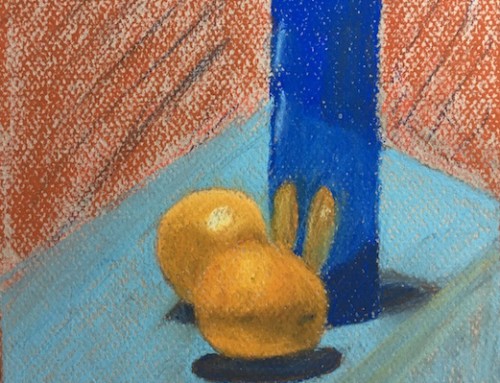
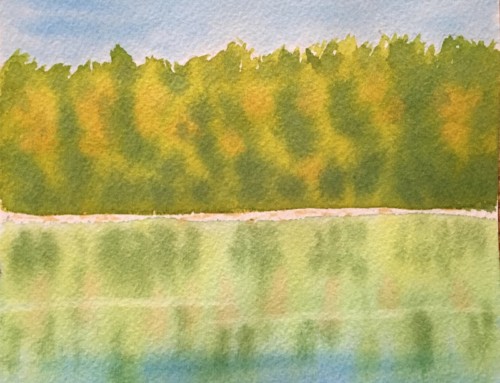
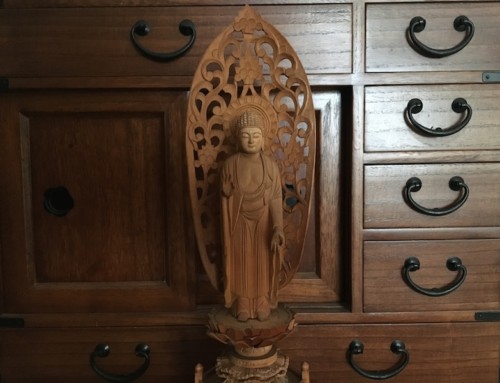
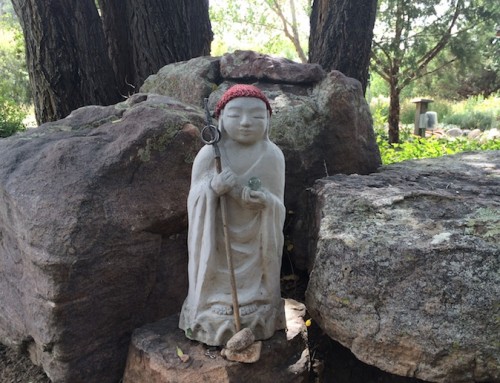
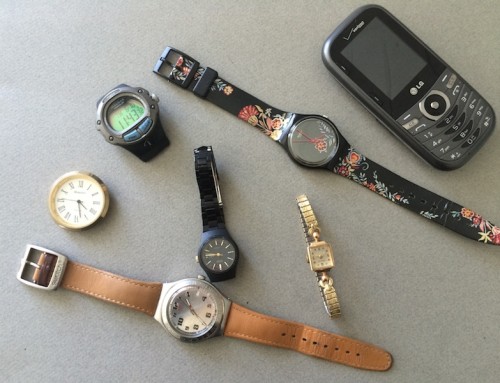
Leave A Comment